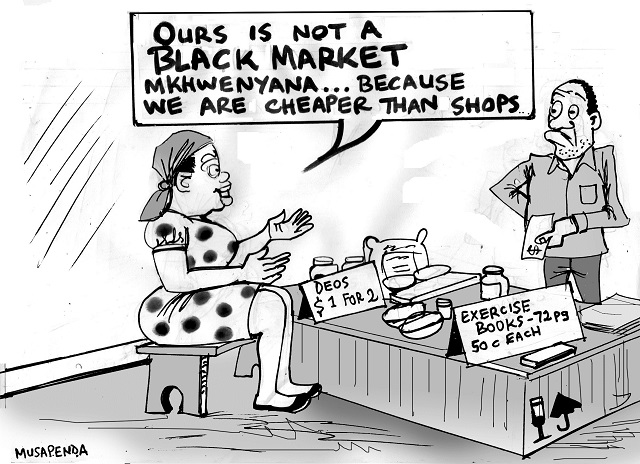Promoting intellectual property monetisation

Aleck Ncube, Intellectual Property
THIS write up focuses on Intellectual Property (IP) monetisation strategies available to patent holders in developing countries that help generate domestic innovation and knowledge-driven growth by promoting more active technology markets.
Patents and all forms of intellectual property are an enabling mechanism rather than a defensive right: an intangible asset class that can be proactively nurtured and managed for greater value extraction to stimulate knowledge-based entrepreneurship and growth in Zimbabwe.
There are alternative monetisation strategies to address the lack of commercialisation of IP in the country. These strategies range from private, market-driven options to those requiring a greater amount of public policy support: from patent securitisation and patent exchanges such as the Intellectual Property Exchange International and the Shanghai Silicon Intellectual Property Exchange.
The TRIPS Agreement, by ensuring stronger intellectual property rights (IPR) regimes around the world, has globalised the IP system and stimulated greater cross-border trade in knowledge assets.
Technology transfer has come to be seen as the primary strategy for developing countries to gain access to much needed, but legally protected, knowledge assets owned in developed economies. The transfer of technology from the developed to the developing world through licensing arrangements is an important process.
Technology transfer remains a major issue in global economic governance debates, it is equally important to recognize the alternative IP commercialisation techniques available to actors in the developing world. By recognising these alternatives, developing nations may eventually begin to close the gap that prevails in IP commercialisation globally.
As IP ownership grows, it is increasingly significant to identify the various mechanisms available to rights holders in Zimbabwe and other developing countries to commercialise their intellectual property rights (IPRs). The IP monetisation strategies need to emphasise the ways that IP can be used to generate domestic innovation and growth within the country. Essentially, it is important to look at the following:
What methods enable developing country innovators to commercialise their technology within their own nation and abroad? In doing so, it is crucial to explore the variety of IP monetisation techniques that exist and assess the extent to which they promote active markets for technology in the country. IP defines a wide spectrum of rights including copyright, trademarks, design rights, patents and geographical indicators.
Patents generate the most economic value globally. However, it is also important to recognise that these other forms of IP can be proactively developed and monetised through mechanisms such as securitisation, licensing, and secondary markets.
There are different commercial tools available to innovators in Zimbabwe and the developing world in order to monetise patents and foster the diffusion of technology, thus attracting opportunities for joint ventures and other forms of international technological collaboration.
These are mechanisms that promote uptake of patent monetisation techniques and there are ample opportunities for patent owners in developing markets to leverage their IP to promote economic growth.
Zimbabwe and other developing countries can capitalise on both market- and policy-driven IP monetisation mechanisms in order to promote active technology markets. These include patent securitisation, patent exchange platforms, public-private technology transfer initiatives and public support in patent litigation procedures.
A combination of institutional support and the adoption of alternative commercialisation processes should help Zimbabwe promote stronger technology markets and generate more financial returns from IP in the future.An important consideration affecting patent commercialisation potential is that of patent quality.
The commercial value of a patent depends on its quality, which in turn relies on patent validity in terms of its claims, it also includes important measures such as forward citations, scope of claims, prior art, extent of patent family and applicable territories.
Poor quality patents hinder the ability to monetise them because, whether or not a country has suitable policies, there will be no market demand for patents with little commercial value. The passing of the Bayh-Dole Act in 1980, which enabled US universities, SMEs and non-profit organisations to appropriate control of IP resulting from federally funded research, is often regarded as an important factor in the increase of patenting and licensing activity by these actors. This has seen many developing nations considering enacting similar policy measures to stimulate licensing revenue.
Clarifying IP ownership in public-private partnerships is a useful policy measure to reduce operating uncertainty and stimulate the commercialisation of IP.
IP bears the potential to foster entrepreneurship as the introduction of property rights is a constitutive element of prospering markets. IP institutionalises a commercial paradigm over knowledge relations and can thus be seen as a cornerstone of the knowledge based economy.
IP is the currency of the knowledge-based economy. The IP system places knowledge and ideas in a market system, acting simultaneously as a legal framework that facilitates disputes over ownership and infringement, thus lowering the cost of IP enforcement for individual firms. IP is a powerful emerging asset class that can be proactively managed, developed, and nurtured to enhance business value.
Patent Securitisation
Securitisation has emerged as a major financial innovation in the recent past and the securitisation of IP assets has received considerable attention from financial service firms. In the simplest terms, IP securitisation enables a company to pool certain rights and sell the future cash-flows associated with them for an immediate lump sum.
The most valuable result of IP securitisation is the unlocking of liquidity without committing the company’s credit, non-IP assets. IP securitisation presents a valuable opportunity for SMEs in Zimbabwe to monetise their assets and improve capital liquidity because it distinguishes between the firm itself and the IP assets in question.
IP securitisation can raise liquidity without relying on company finance reports, incurring income tax on proceeds, creating new debt on balance sheets and, usually, without losing the right to manage and exploit the IP in the future.
Patent Exchanges
The incredible growth in the value of IP assets globally has not been adequately matched with increased levels of funding for R&D in the developing world.
Developing countries encounter two challenges: they must manage risks associated with innovation and they are largely unable to tap the full range of institutional investors because of their relatively undeveloped capital markets.
The development of a liquid and robust exchange for IPRs is a vital step to ensure that SMEs gain alternative forms of finance for innovation. Financial exchanges for patents enable non- or under-utilized patents to be traded in a transparent market place. An exchange is valuable because it makes patents available to those that are in the best position to monetise them. SMEs in the developing world may own valuable product and service patents but have insufficient complementary assets to monetise them. The complementary assets of large multinational firms result in high barriers to entry for innovators in the developing world, who do not benefit from the same economies of scale and scope.
An effective exchange mechanism for patents reduces the need for complementary assets to commercialise a product. Exchanges thus enable innovating SMEs to monetise their rights without the considerable capital outlays traditionally associated with this process. They are a powerful tool for SMEs in a developing country like Zimbabwe, to monetise their patent rights. This has been done elsewhere and Zimbabwe can learn from the experiences and best practices.
In my next write up, I will focus on Technology Transfer and Commercialisation Infrastructure, which goes hand in hand with the introduction of Incubation Hubs in Zimbabwe’s institutions of higher learning.
Aleck Ncube is an Intellectual Property scholar based in Bulawayo. He can be contacted on Mobile: +263712374408
Skype: Matintas1 Twitter: @aleckncube Alternative E-mail: [email protected]











Comments